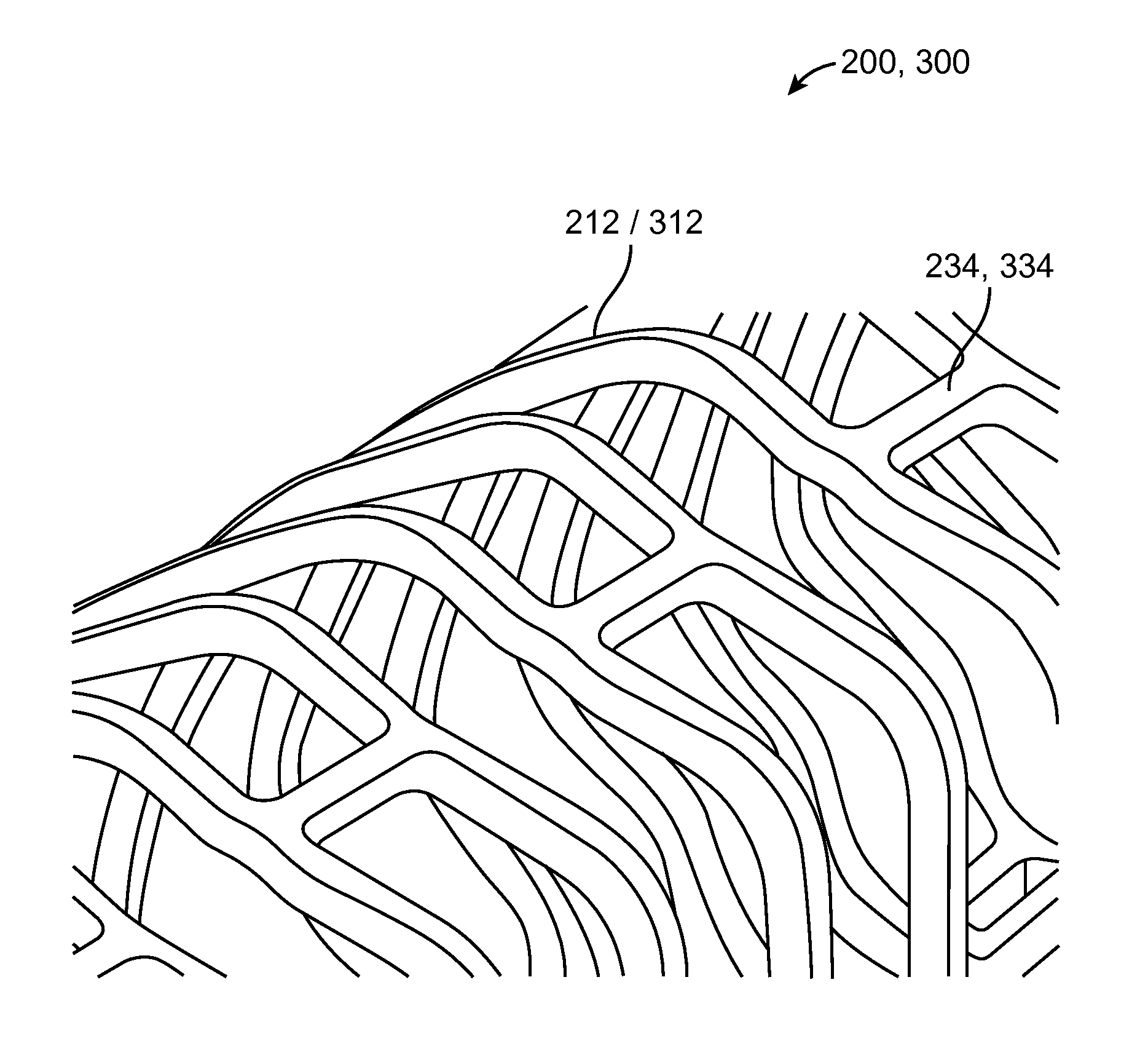Polymer scaffolds for peripheral vessels
a polymer scaffold and peripheral vessel technology, applied in the field of drugeluting medical devices, can solve the problems of most often occurring failure of the scaffold structure, and prior scaffold designs are most susceptible to crack formation, and achieve the effect of reducing the late lumen loss, discontinuity or percentage of fractured structures, and reducing late lumen loss
- Summary
- Abstract
- Description
- Claims
- Application Information
AI Technical Summary
Benefits of technology
Problems solved by technology
Method used
Image
Examples
Embodiment Construction
[0049]The disclosure proceeds as follows. First, definitions of terms that may be used during the course of the subsequent disclosure are explained. Embodiments of processes for forming a deformed polymer tube from a precursor are provided. According to the disclosure, the crush recoverable and balloon expandable scaffold is cut from a tube (FIG. 1) formed through a process intended to enhance mechanical properties of the scaffold including fracture toughness. Discussion of the scaffold patterns according to several embodiments are discussed next. Examples of the scaffold patterns are provided. During this discussion, reference is made to aspects of a scaffold found to play an important role in the stiffness, strength, crimping and deployment of a polymer scaffold. Finally, bench and in-vivo test results are discussed, including exemplary examples of embodiments of invention and explanation of the results observed and problems overcome. In these examples there may be gained a furthe...
PUM
| Property | Measurement | Unit |
|---|---|---|
| diameter | aaaaa | aaaaa |
| diameter | aaaaa | aaaaa |
| diameter | aaaaa | aaaaa |
Abstract
Description
Claims
Application Information
 Login to View More
Login to View More - R&D
- Intellectual Property
- Life Sciences
- Materials
- Tech Scout
- Unparalleled Data Quality
- Higher Quality Content
- 60% Fewer Hallucinations
Browse by: Latest US Patents, China's latest patents, Technical Efficacy Thesaurus, Application Domain, Technology Topic, Popular Technical Reports.
© 2025 PatSnap. All rights reserved.Legal|Privacy policy|Modern Slavery Act Transparency Statement|Sitemap|About US| Contact US: help@patsnap.com



